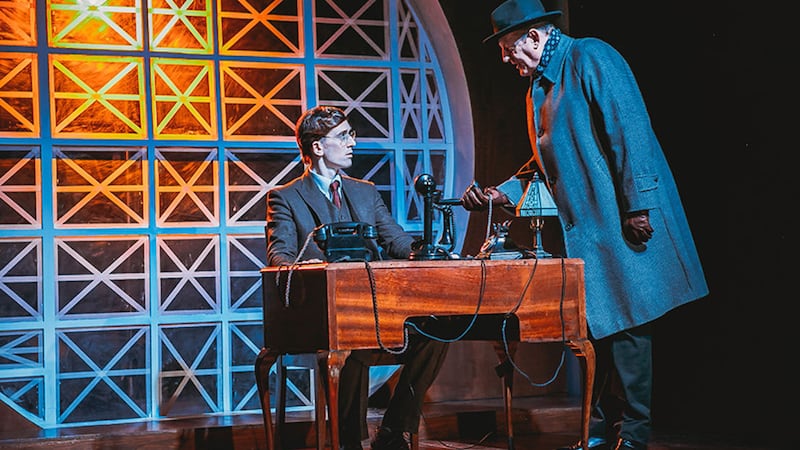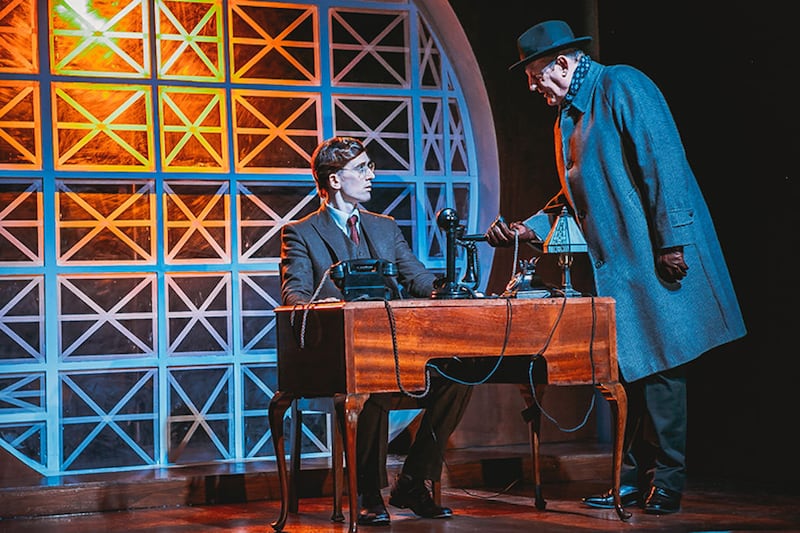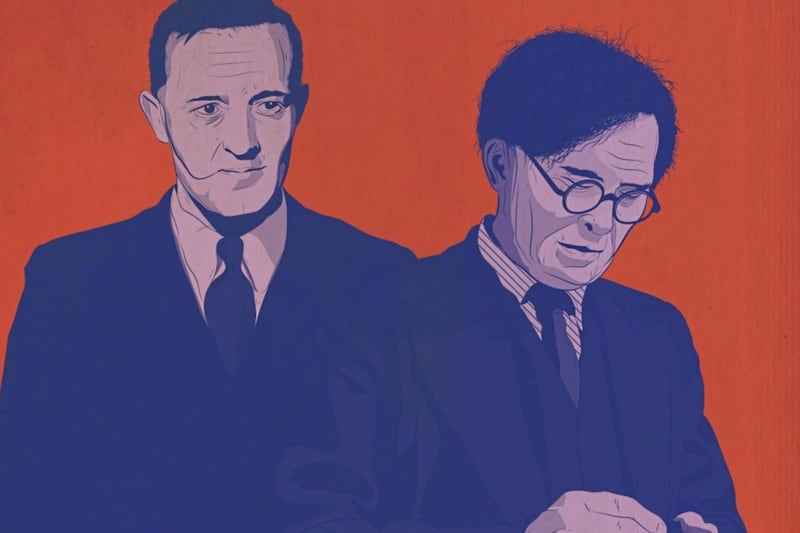During the interval of Friday night's performance of Double Cross at the Lyric Theatre, somebody said they thought it was a new play.
In fact, Thomas Kilroy's stimulating drama about Brendan Bracken and Lord Haw Haw aka William Joyce was premiered by Field Day Theatre Company in 1986, with Stephen Rea in the two main roles. The mistake is understandable.
For Double Cross is all about national identity, Irish and British, real and assumed, and extremism, resonant topics in the Brexit era.
Both Irishmen are uncomfortable with their Irish roots and both betray them. Played in the round, there's no hiding place for these fantasists.
Bracken appears first as a posh chancer who affects a PG Wodehouse accent but is clever enough to back it up with money. He's nicely done in Ian Toner's performance, and it's no surprise he is equally uncomfortable in his masculinity, only capable of loving Popsy (indomitable Charlotte McCurry) when she gamely dons her Baden-Powell outfit.
This wartime Minister for Information is happy to adjust facts and Bracken adopts several fathers, including a bishop. Yet his actual daddy was an active "Fenian" and wife beater. Lord Haw Haw also enters the first act via a radio rant, an anti-Establishment man tackling the ur-Establishment guy. There is a dualism here in the propagandists and Toner cleverly allows his characters to blur at the start of act two.
In a way, Double Cross presents a different view of World War 2. Here are two men passionately taking sides in a war they've stolen. The Lord Haw Haw narrative, with the same cast and brilliant Sean Kearns as Eric, the sentimental Nazi, is harrowing. He and Margaret Joyce are in a miserable co-dependent relationship, with a lot of cruelty on his side.
For a play about ideas, stuffed with Wildean aphorisms, there's a lot of drama.
The story ended badly for both men. Eventually, in a grim irony (and the play is full of them) cancer robbed Brendan Bracken of his borrowed voice. Lord Haw Haw was hanged, but not before he'd been quizzed by Bracken's ally, the press baron Lord Beaverbrook.
As Lord Castlerosse observes, "There are Irish and then there are Irish and then there are other Irish." An apt observation, brought to life under Jimmy Fay's direction in a great co-production with the Abbey Theatre of a fascinating play.




